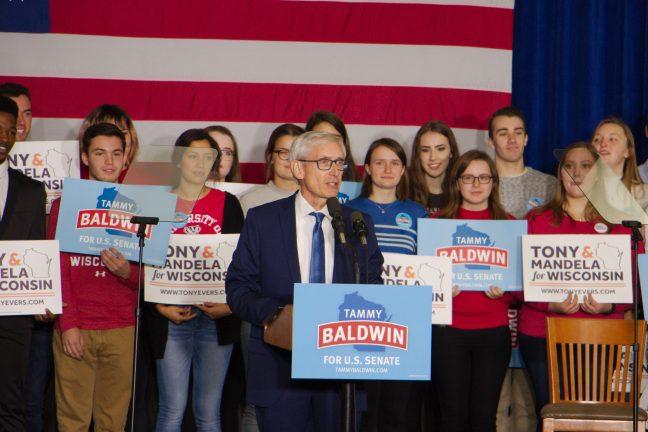Gov. Tony Evers, set to release his official budget proposal Thursday, has revealed parts of his budget regarding higher education.
A key tenet of his budget continues the tuition freeze at the University of Wisconsin System’s schools. Former Gov. Scott Walker had initiated the freeze in response to discovering a UW System surplus and “slush fund.”
The surplus, or excess cash, was cited to have reached $648 million in 2013, according to Politifact. The freeze was first initiated in the 2013-15 two-year budget plan and has been extended in every following budget.
On the campaign trail, both Walker and Evers suggested they would continue the tuition freeze. But this has received backlash from some UW System officials, who suggest the tuition freeze needs to be offset by state funding to maintain UW System budgets.
In the past, Walker has slashed UW System budgets. In 2015, Walker cut $250 million. From 2010 to early 2018, the percentage of the UW System budget funded by the state went from 21.1 percent to 17.1 percent.
In the current budget, an additional $26 million was reintroduced to the UW System, according to Wisconsin Public Radio. That money, however, was tied to institutional performance.
Performance was to be monitored based on three-year averages to create baselines for data, according to WPR. Areas factored into judging performance include the number of STEM-subject graduates, the number of enrolled students from underrepresented communities, and average student debt upon graduation.
Evers’ administration outlined $150 million to be invested into higher education, with one-third to be earmarked for making up for revenue lost during the freeze, according to the Associated Press.
Another tenet of the budget proposal is $109 million in additional funding. These funds are to be allocated to increase access to classes in high demand. They will also serve to bolster student support services and boost funding for a nurse educators program.
The program, in response to a widespread nursing shortage, would assist in repaying student loans if nurse educators commit to teaching at a Wisconsin nursing program for three years.
The additional funding would also go towards funding UW-Extension agricultural agents in counties that request them and help offset the cost of the tuition freeze.
Other tenets include $18 million towards funding technical colleges, $50 thousand for a study regarding refinancing student loans, and $17.4 million allocated to funding in-state need-based grants at UW schools, technical colleges and private universities.


